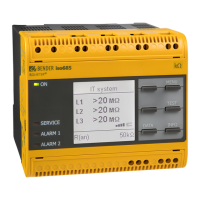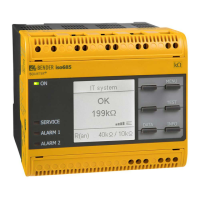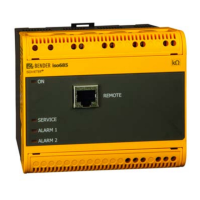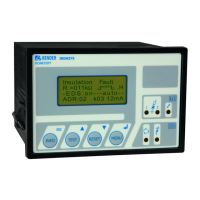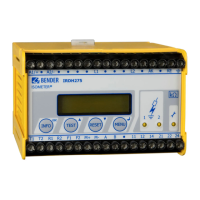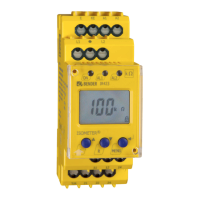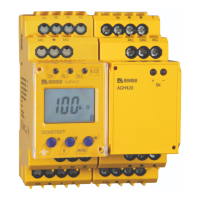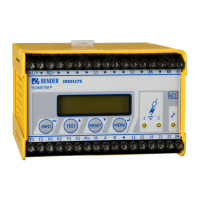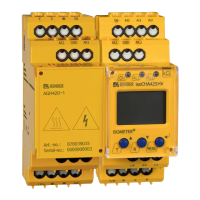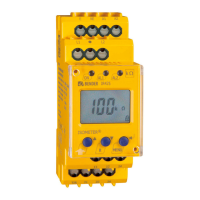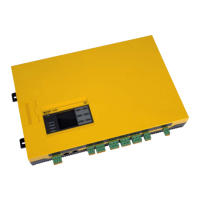SettingsSettings
iso685-D-P_D00170_00_M_XXDE/06.2016
57
10.1 2.4.4.1 System type
Adjust the EDS to the IT system to be monitored.
10.1 2.4.4.2 Frequency
Configure the mains frequency of the IT system to be monitored.
Settings made to this menu point will only have an effect on connected
EDS460 and NOT on EDS44… devices.
•DC
DC system
•AC
Single-phase AC system
•3AC
3AC system
Settings made to this menu point will only have an effect on connected
EDS460 and NOT on EDS44… devices.
•50 Hz
•60 Hz
•400 Hz
•DC
10.1 2.4.4.3 Trigger
The locating current pulse of the ISOMETER® is synchronised with the measurement tech-
nology in the EDS via the BB bus or the BS bus. This allows a more reliable detection of the
locating current pulse in the event of disturbances.
Disturbances can be caused e.g. by variable-speed drives, rectifiers, actuators, noise fil-
ters, PLCs, or control electronics.
10.1 2.4.4.4 Fault memory
Faults that only occur temporarily can be saved.
10.1 2.5 Channel
In this menu, each channel can be configured. Also refer to “10.1 2.4.1 Channel”.
10.1 2.5.1 Name
Enter a name for the selected channel. This name will also be displayed on the gateways
and in the web server and can be edited via these as well.
•Com
Synchronisation via BS bus or BB bus. The EDS only searches for
insulation faults if the insulation fault location has been started.
Less time is needed for the insulation fault location as with the set-
ting "auto".
•auto
No synchronisation (e.g. if there is no BS bus or BB bus).
The EDS continuously searches for insulation faults.
If the trigger mode is set to "auto", the use of a portable EDS must be acti-
vated in the menu
(menu item “10.1 2.1.3 Using a portable EDS” = "on"), since the measure-
ment method is correspondingly adjusted at this menu point.
•on
After eliminating the cause of fault, alarm messages remain stored
until a RESET is carried out. This function applies to alarm and
device fault messages.
•off
The EDS exits the alarm mode as soon as the cause of fault is elimi-
nated.
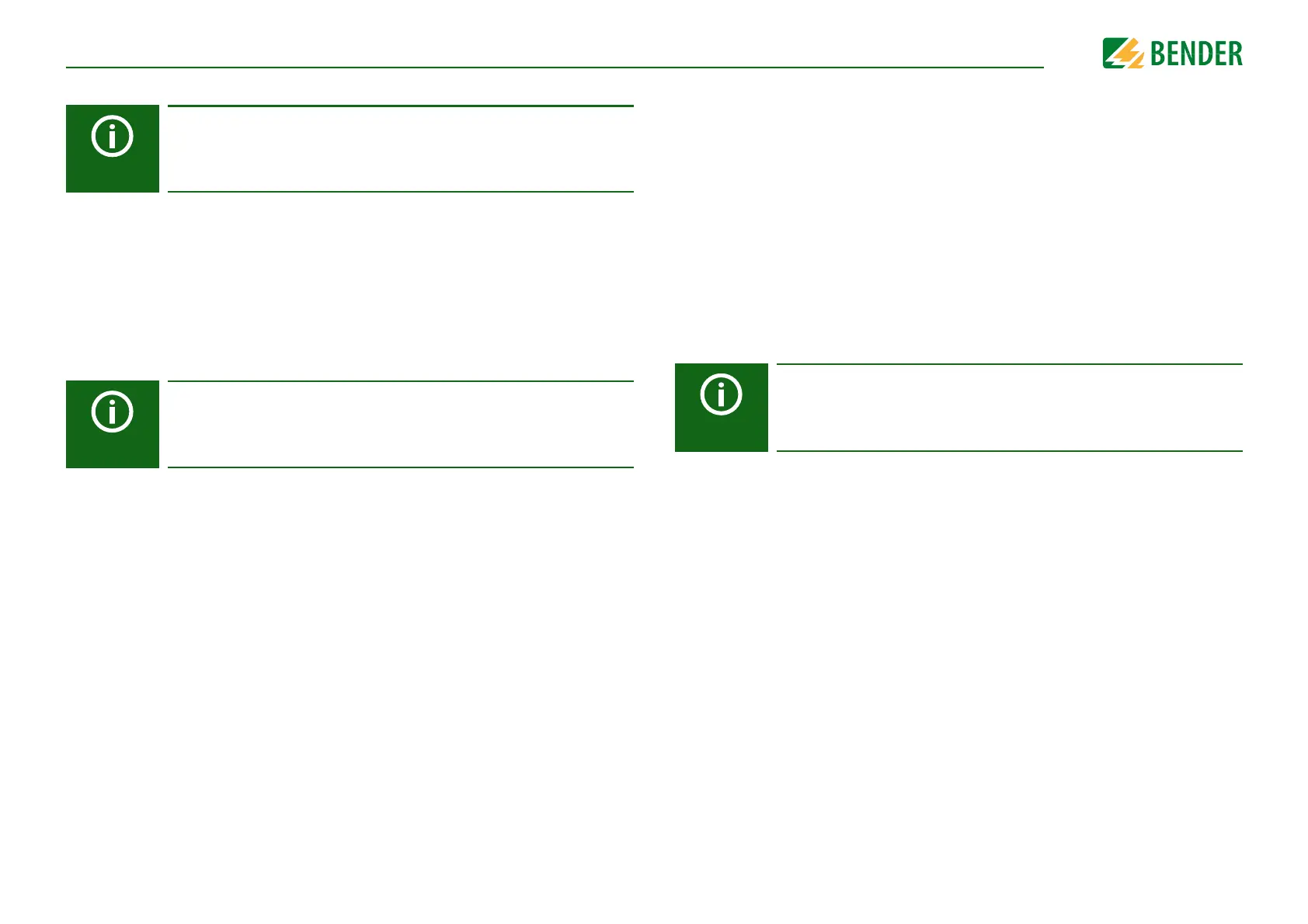